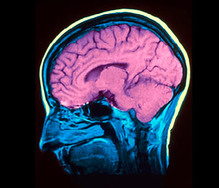 For the study, Dr. Munro Cullum, a neuropsychologist at the University of Texas Southwestern Medical Center in Dallas, and his colleagues collected data on 28 former NFL players, aged 63 and older. Eight suffered from memory and attention problems and had a history of concussion. Seventeen had a history of concussion with loss of consciousness. Researchers found that former players with a history of concussion but who showed no problems with memory and learning had normal but lower scores on a test of verbal memory compared with a control group of people who had no history of concussion or football. Former players with memory problems and a history of concussion did worse on the memory tests than people without a history of concussion or athletes without memory problems, the researchers found. However, retired football players who had at least one concussion with loss of consciousness had a smaller hippocampus compared with retired players who never had a concussion or people who never suffered a concussion or played football. Dr. Cullum noted that a concussion with loss of consciousness may increase the risk for memory problems beyond the normal risk associated with an aging brain. Dr. Robert Glatter, director of sports medicine and traumatic brain injury at Lenox Hill Hospital in New York City, said, "We are now beginning to understand that repetitive hits to the brain over time -- without concussion or loss of consciousness -- can be an important marker for mental impairment and memory loss and potentially other neurodegenerative disease such as dementia or Alzheimer's," he said. Dr. Robert Duarte, a neurologist and concussion expert at North Shore-LIJ's Cushing Neuroscience Institute in Manhasset, N.Y., agreed that losing consciousness isn't necessary to cause brain damage that can lead to memory problems. "We see that people who have several mild concussions over time also have a decrease in hippocampal volume," he said. SOURCES: C. Munro Cullum, Ph.D., neuropsychologist, University of Texas Southwestern Medical Center, Dallas; Robert Glatter, M.D., director, sports medicine and traumatic brain injury, Lenox Hill Hospital, New York City; Robert Duarte, M.D., neurologist and concussion expert, North Shore-LIJ's Cushing Neuroscience Institute, Manhasset, N.Y.; May 18, 2015, JAMA Neurology.
0 Comments
Your comment will be posted after it is approved.
Leave a Reply. |
Disclaimer: This website is for informational and educational purposes.
Any and all blog content represents a synthesis of empirical information found on the internet, of my own personal opinions, and my professional experiences. Nothing posted reflects or should be considered professional advice. Interaction with me via the blog does not constitute a professional or therapeutic relationship. For professional and customized advice, you should seek the services of a licensed mental healthcare professional. I do not assume liability for any portion or content of material on the blog and accept no liability for damage or injury resulting from your decision to interact with the website. Archives
October 2023
Categories
All
|